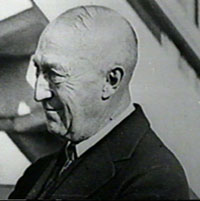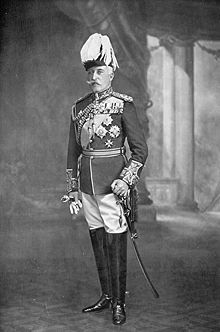Chapter Twenty One: God, Liberty, Cascadia
9th of January, 1905:
Prime Minister McBride's auspicious victory brought forth an overwhelming sense of optimism to Cascadia, a nation that had recently lost one of it's beloved leaders. Peace and prosperity were promised by the Conservatives, and with the majority the Tories were given, there was no doubt in any citizen's mind that Cascadia would reach a new golden age. Over the next five years, to many this optimism would be seen to be a self-evident truth, as both the economy and the Cascadian quality of life improved. Factories were built and promptly filled by willing and able merchants. Railroad lines, no longer beset by deleterious legislation restricting ownership, quickly spanned all across the Rockies. The population, which had stagnated at three and a half million souls prior to the threat of war, exploded once more. Washington Province soon surpassed British Columbia once again, being the first province within Cascadia to house over a million individuals.
This wealth coincided with numerous changes to Cascadian politics, of which few took any real heed. The Cascadian Senate was rejuvenated with youthful appointees, various safety regulations were repealed, and education levels reached European levels, with only Chinese immigrants lagging behind the First Nation and Western immigrant communities. Business owners, land owners, and the government aligned unions were all exceedingly pleased with the current events. Only the remnants of the Cascadian socialists and communists, along with what remaining reactionaries there were, remained displeased with the way things were occurring.
As for the various liberals, a tragedy struck them. In 1901, William Templeton was hit by a tram during a trip to the grocery store while intoxicated. This occurrence, just a year following their electoral collapse in the face of a powerful conservative movement, dispirited the National Democrat Party immensely. Robert Moran, former mayor of Seattle and the leader of the Liberal Party, saw a silver lining. As the National Democratic convention was gathering, Moran himself joined as an observer, preaching unity and strength in the wake of the Tory successes. His message would be heard by Charles Vance Miller, a Canadian-born railway magnate in the BC interior, who would in turn preach to the gathered Nat-Dems that the only way to remain relevant would be through a merger with the Liberals. Miller's humour and passion swayed the voters, and he was elected as the leader of the National Democrats in late 1901. On February 9th, 1902, Miller formally announced the merger of the National Democrats and the Cascadian Liberals. While retaining the Cascadian Liberal name, Miller would become deputy leader of the party and it's whip in the House of Commons, alongside the adoption of Interventionism. Twenty six years and a day following 'Boomer' Walkem's decision to break away from the Cascadian Liberals in the face of economic downturn, the National Democrats were no more.

Charles V. Miller, last leader of the National Democrat Party.
This mattered little to Prime Minister McBride, who retained his super-majority in Parliament (and now due to appointments, in the Senate). His desire to revitalise Cascadia had succeeded. With so much time on his hands, he was allowed to look out into the world and no longer retain such a narrow mindset. The Leader of the World remained the British Empire, which stretched through the vast majority of Southern and Western Africa. It was in this place that Victoria passed in 1901, the entire Empire, Cascadia included, went into mourning. Even so, King Edward VII dutifully took his place on the British throne. Nevertheless, in spite of the loss of Queen Victoria it seemed that the British Empire still retained it's glory. However, the French and German Empires closed on upon British glory, nipping at Britannic heels. Only the constant infighting between the two Emperors, Napoleon IV and Wilhelm II, kept them behind the British Empire. The two Empires took almost a cartoonish level of hatred to one another, as wars broke out the day following the end of ceasefires. Alsace and Lorraine, once historic and populated, were now little more than an extended no-man's-land. Alliances with either party were rarely honoured by other governments, due to they all being used solely against one another. As of 1905, Alsace and Lorraine remain in French hands after a bitter battle fought at Metz forced the Germans to concede.
The United States stayed the course, with their economy among the largest in the world. Currently run by pro-business Republicans and President Roosevelt, it seems the eagle will never be put back in the cage following the awfulness of the American Civil War. The Russian Republic is simply the latest in a series of domino regimes on the unstable Central Asian steppes. Communists, socialists, monarchists, and liberals fought for control of a dwindling land. This was to the benefit of the British Empire, which wholeheartedly won the Great Game following the collapse of the Russian Empire. With socialist revolutionaries once again marching on Petrograd, it is unknown how long this newest Republic will last until it too falls like so many others.
The Japanese Empire, the Kingdom of Italy, and the Austro-Hungarian Empire fought for the dregs of international recognition. Wars in China, Africa, and Serbia respectively have all been mildly successful. Although Japanese industry is starting to truly modernise, it is not at the point to truly break from the pack.
Alas, the international community meant little to Cascadia aside from the British Empire, their enemies in the Dominion of Canada, and allies in the United States. Although no longer a Dominion, Cascadia nominally continued to receive British Governor Generals. To which Robert Carrington, 1st Marquess of Lincolnshire gladly ended his term, down with colonial nonsense and undue bother. However, his misgivings were lost on the Crown, which saw the success of Cascadia and it's peace as a sign that the troubles of just five years ago were over. Thus, they dispatched Prince Arthur, the late Queen Victoria's son, to be Governor General. A sign of Royal Trust, it was truly a portent of good as Cascadia approached it's elections.

Prince Arthur, Duke of Connaught and Strathearn, 5th Governor General of Cascadia

